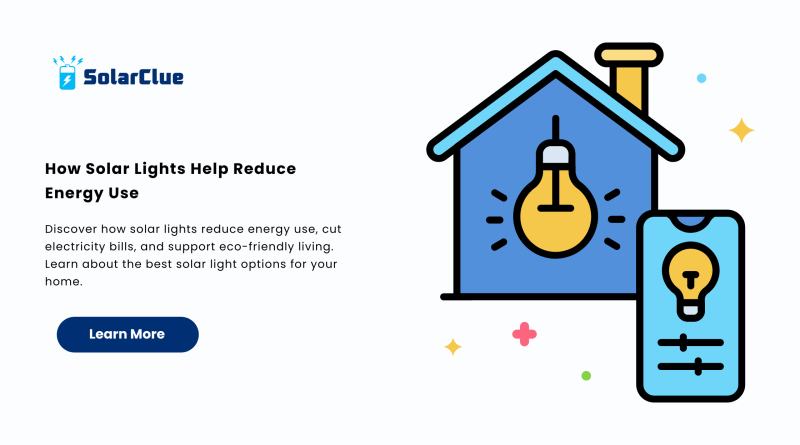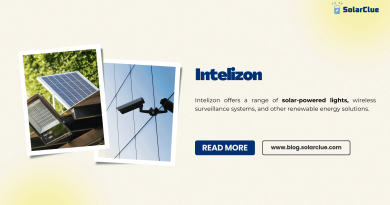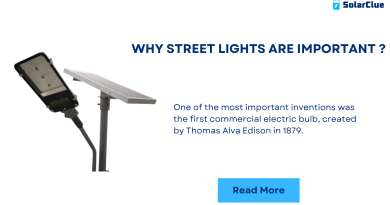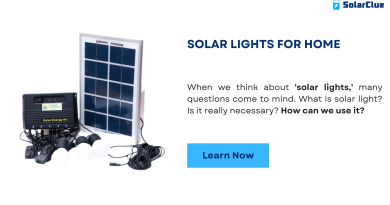How Solar Lights Help Reduce Energy Use
In a world where energy conservation is more crucial than ever, adopting solar lights can be a small yet significant step toward sustainability. These eco-friendly lighting solutions are powered by solar energy, reducing dependence on conventional electricity sources and lowering household energy bills. If you’re considering greener alternatives for your home or business, solar light for home is a smart investment that benefits both your wallet and the planet. Let’s discover How Solar Lights Help Reduce Energy.
Table of Contents
- 1 What Are Solar Lights?
- 2 How Solar Lights Reduce Energy Consumption
- 3 Environmental Benefits of Solar Lighting
- 4 Financial Advantages
- 5 Applications of Solar Lights
- 6 Choosing the Best Solar Light
- 7 Long-Term Impact on Energy Use
- 8 Overcoming Common Misconceptions
- 9 Real-Life Use Cases
- 10 Integration with Smart Systems
- 11 Conclusion
- 12 FAQs
What Are Solar Lights?
Solar lights are lighting devices powered by solar power, using photovoltaic cells to convert sunlight into electrical energy. This energy is stored in rechargeable batteries and used to power the light after the sun sets. They come in various forms—from garden lights to street lamps and indoor fixtures.
How Solar Lights Reduce Energy Consumption
Lower Electricity Usage
Because solar light systems operate independently of the power grid, they consume no electricity from conventional sources. This means households and businesses that use solar lights significantly lower their overall energy use.
Energy Efficiency
Modern solar lights are equipped with LED technology, which uses less power and lasts longer than traditional bulbs. Combined with solar energy, this leads to highly efficient lighting solutions.
Automated Operation
Most solar lights come with automatic sensors that switch on at dusk and off at dawn, optimizing energy usage without human intervention. This ensures efficient energy management and convenience.
Environmental Benefits of Solar Lighting
Reduces Carbon Footprint
By shifting to solar power, users help decrease reliance on fossil fuels, directly reducing greenhouse gas emissions. The clean and renewable nature of solar energy makes it an ideal choice for eco-conscious consumers.
Sustainable and Renewable
Solar lights utilize an infinite energy source: the sun. Unlike fossil fuels, solar energy will never run out, making it a sustainable solution for future generations.
No Emissions or Noise Pollution
Unlike diesel or gas-powered generators, solar lights operate silently and emit no pollutants, making them perfect for residential areas and nature-friendly zones.
Financial Advantages
Cuts Electricity Bills
Using solar light for home can drastically reduce electricity expenses, especially in outdoor lighting applications where traditional lighting runs for long hours.
Low Maintenance Costs
Most solar light products require minimal upkeep. With no wiring or electrical connections, they’re easy to install and maintain, which further adds to the savings.
Incentives and Tax Benefits
Depending on your region, installing solar power systems may qualify you for government incentives, rebates, or tax deductions, making the investment even more appealing.
Applications of Solar Lights
Residential Use
From garden paths to patios, solar lights offer versatile lighting options that enhance curb appeal while saving energy.
Commercial Use
Businesses use solar lighting for signage, parking lots, and walkways to cut costs and boost environmental responsibility.
Emergency and Off-Grid Use
Solar lights are ideal for areas with unstable power supplies or in emergency situations, ensuring reliable lighting even during outages.
Choosing the Best Solar Light
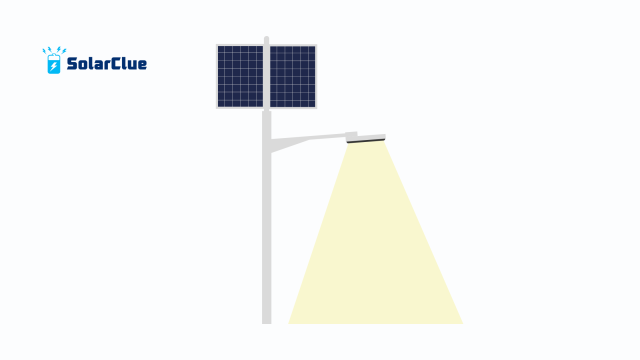
Brightness and Lumens
When selecting the best solar light, check the lumens rating. Higher lumens mean brighter light, suitable for security or large outdoor areas.
Battery Capacity and Charging Time
Opt for solar lights with large-capacity batteries and efficient panels to ensure longer lighting hours and quick charging times.
Weather Resistance
For outdoor use, make sure the solar light is weatherproof. IP65-rated lights are usually resistant to rain and dust.
Style and Design
From classic lanterns to modern fixtures, choose a style that complements your home’s aesthetics.
Long-Term Impact on Energy Use
Switching to solar lights may seem like a small change, but over time, it accumulates into substantial energy savings. If millions of homes adopt solar light for home, the collective impact can ease pressure on national grids and promote cleaner energy systems.
Overcoming Common Misconceptions
“Solar Lights Are Not Bright Enough”
Advancements in LED and battery tech have drastically improved solar light brightness, making them comparable to traditional lighting.
“They Don’t Work on Cloudy Days”
While solar energy collection may reduce slightly on cloudy days, most solar lights store enough power to function for several days without direct sunlight.
“Installation Is Complicated”
Most solar lights are plug-and-play. Simply mount them where needed, and they’re ready to go—no electrician required.
Real-Life Use Cases
Rural Electrification
Remote villages without electricity have seen transformative impacts through solar lights, enabling children to study and businesses to operate longer hours.
Disaster Relief
After natural disasters, solar light kits are among the first emergency tools deployed due to their reliability and ease of use.
Eco-Friendly Cities
Many green cities have integrated solar-powered street lights as part of their sustainability goals.
Integration with Smart Systems
Some solar lights now come with smart sensors and integration options for home automation systems, offering remote control via smartphone apps.
Conclusion
Switching to solar lights is more than just a trend—it’s a practical solution for reducing energy consumption, saving money, and protecting the environment. With a variety of options available, from garden decor to street lighting, adopting solar power has never been easier or more impactful.
Take your first step toward a greener lifestyle with solar light for home, and watch the difference unfold not only in your electricity bill but also in your contribution to a cleaner planet.
Ready to make the switch? Explore the best solar light options and green energy tips at our blog blog.solarclue.com and discover reliable products at solarclue.com—because sustainability begins with smart choices.
FAQs
1. How do solar lights save energy?
They use sunlight to generate power, eliminating the need for electricity from the grid.
2. Are solar lights bright enough for home security?
Yes, modern solar lights with LED technology offer sufficient brightness for outdoor security.
3. Do solar lights work during winter or cloudy weather?
Yes, although charging may be slower, most have enough battery storage to function.
4. What’s the lifespan of a solar light?
High-quality solar lights can last 3-5 years, with some LED bulbs lasting up to 10 years.
5. Can solar lights be used indoors?
Yes, with proper placement of the solar panel outdoors, solar-powered lights can illuminate indoor spaces effectively.

